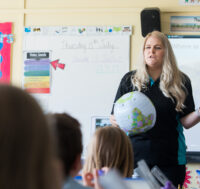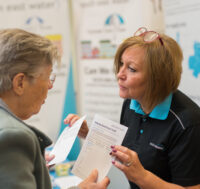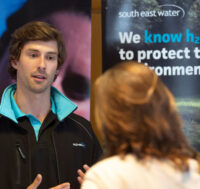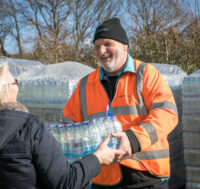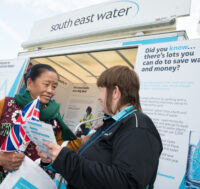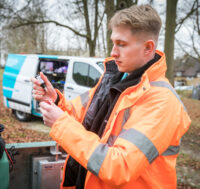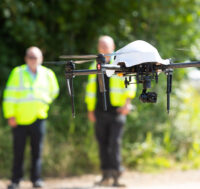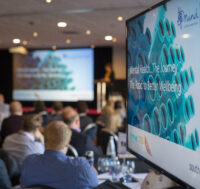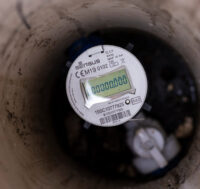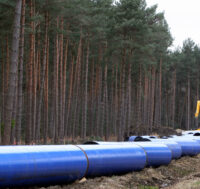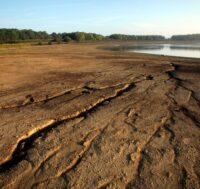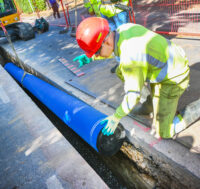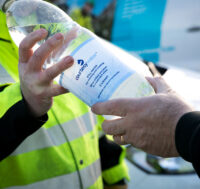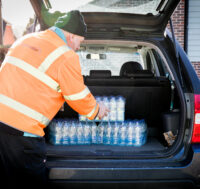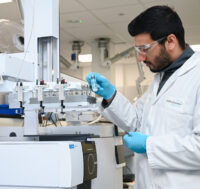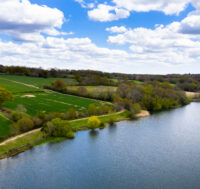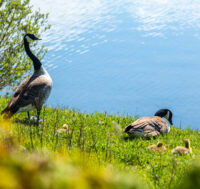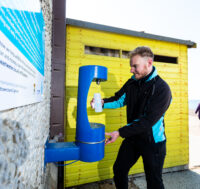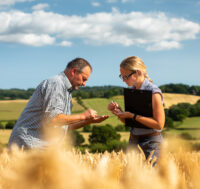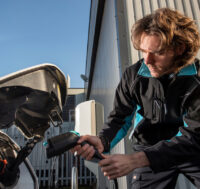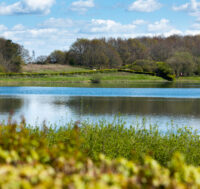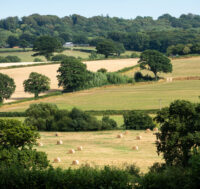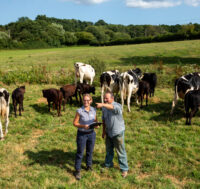Farm events to inspire behaviour change
Our team of Catchment Advisors work hard all year-round to understand, and mitigate, any risks posed to the health of our water sources.
A large part of this work involves partnering with hundreds of farmers and land managers in priority catchment areas.
Delivering information and advice at free workshops forms a key part of our engagement strategy to meet our ODI target of supporting farmers and land managers responsible for a cumulative total of 14,217 hectares of land between 2020 and 2025.
That’s why during the financial year 2022/23 we spoke with almost 200 farmers across nine free workshops and events across Kent, East Sussex, Surrey, Hampshire and Berkshire – our highest annual figure so far.
The majority of these workshops were tailored to the specific farming operations taking place near our abstractions for drinking water supply.
Our western region in Hampshire, Berkshire and Surrey is dominated by arable farms, while East Sussex has a large number of maize and dairy farmers, and our Kent catchments have many fruit growers.
We also use these events to share our data and research findings, such as our annual trials of growing different winter cover crop mixes to prevent nitrogen leaching into chalk aquifers, the installation of on-farm rainwater harvesting systems or the practice of growing grass in-between rows of maize crops (often used for cattle feed).
Simon Lohrey, Surface Water Manager at South East Water explains: "Some of the farmers we’ve worked with on these trials have opened their doors to our guests and hosted the event at their farm."
“This enables us to provide a walk and talk session in their fields, so others can see first-hand the success of any innovative practices while quizzing the farmer about their experience of working with us.
“Often, we bring in outside experts to educate farmers, and our own advisors, with the latest research and best practice – such as the Maize Grower’s Association and Farming and Wildlife Advisory Group.
“This tailored approach allows us to deliver the right advice, at the right time, to have the biggest impact on raw water quality and the sustainability and efficiency of agricultural businesses.”
In addition to our information-based events, during this last year we held three research sessions with farmers and our own staff to understand their attitudes towards us, sustainable farming initiatives and help us discover what more we can do to reach our farm engagement target for the rest of the business plan period.
Those that came to our events gave us an average feedback score of 8.7 out of 10 and 61 per cent said they were more likely to take up the initiatives we are promoting because of the workshop – showing intent to change behaviour.
Many of the remaining 39 per cent are already using these methods, leaving just a small proportion of farmers who are not yet considering more modern, sustainable, farming practices.
Find out more about our farm events here.

